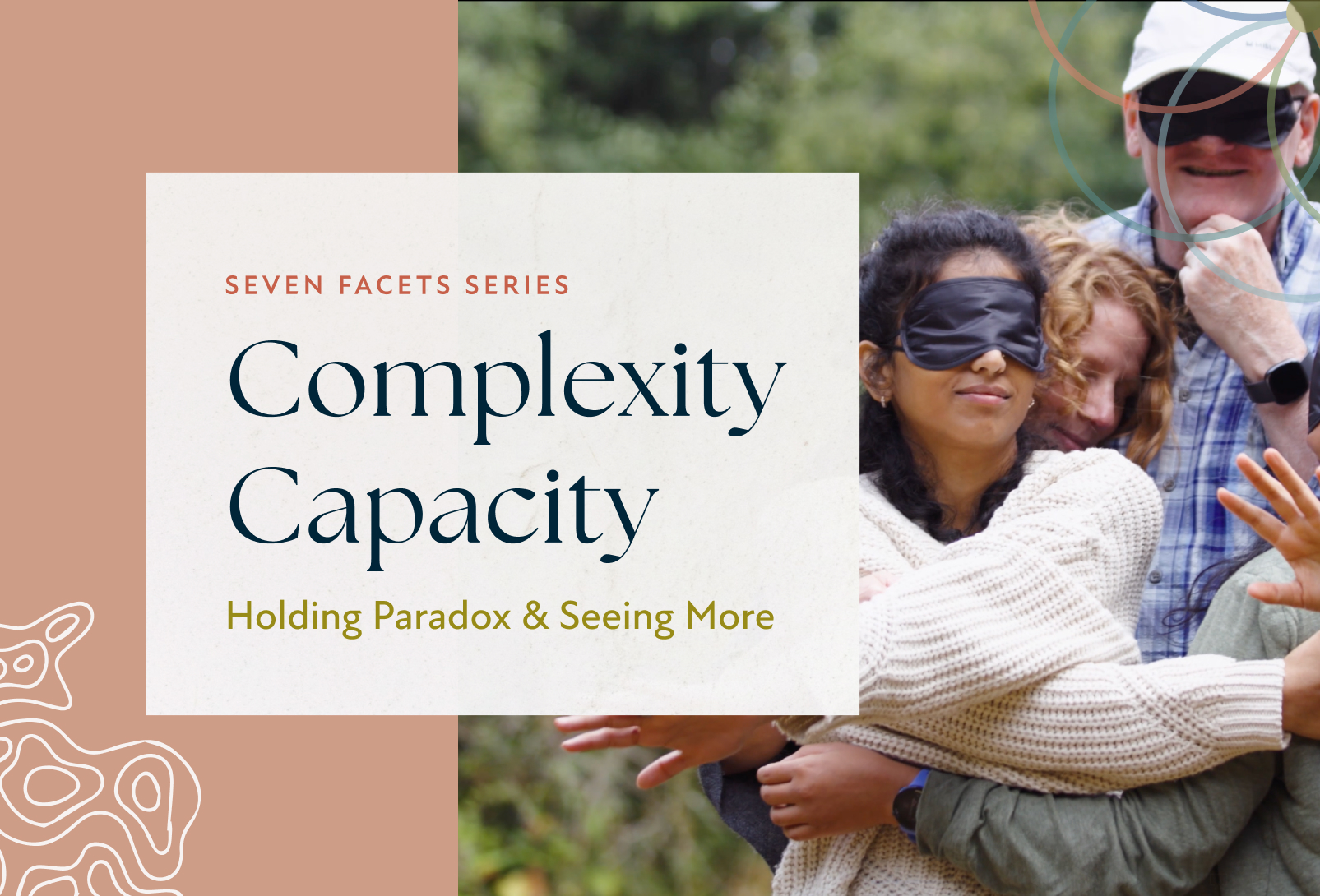Our capacity for complexity refers to the ways that we grow and mature over the course of our lives and how as we grow, we can widen and deepen to include more of the world, including its complexity or multiplicity. One of the ways we like to think about this is widening circles of identity, care and responsibility. Our sense of being able to take responsibility and act in the world widens and deepens, and our care grows and deepens as well.
Complexity might suggest something abstract or complicated. However, what we are referring to is the ability to be less polarized, to recognize and include diversity and multiplicity while also seeing a greater whole, and to hold paradox and nuance.
Our complexity capacity can help us to see more of the intricacies of a situation. It can help us find the simplicity in something that feels overwhelming. It might mean being able to see subtle dynamics in a situation that seems chaotic or random. And it supports not losing sight of the whole, our interdependence, and finding creative and generative ways of responding to challenges.
To offer an example of growing and maturing complexity capacity: When we are young, we first find ourselves in a concrete world of the self - a self-centric or ego-centric view. We then grow to understand ourselves and each other as social beings with different needs and experiences. Then we differentiate from those relationships and communities and recognize that we have a mind with its own thoughts and feelings and ability to understand and act in the world. Then, we discover context and perspective - an awareness that there's many different contexts at play in any situation, and that we have multiple inner perspectives. One of the ways that we develop this is by traveling to different contexts and grappling with the disorienting reality of living in different cultures with different ways of perceiving the world, for example. Here we recognize that there are inner and outer contexts that shape who we are and how we perceive the world. We then discover the constructed nature of language and thought and one’s very sense of self. This opens yet another depth of complexity that we can include and respond to.
One of the misunderstandings about complexity capacity is the assumption that to have more of it is better. It's just not true. The goal is really to be as whole and as capable and as ethical as we can exactly where we are, and to truly recognize the inherent value and worth of all the ways of being and making meaning. And at the same time to appreciate and value what becomes available and gets liberated in the deepening capacities to engage with more complexity, more of life, including finding the simplicity on the other side of complexity.
These territories of understanding are all present within us, some as realized potential and some as latent. As we cultivate them and learn to engage with what is needed in the moment, we develop the capacity to help our world depolarize, defragment, and see itself more clearly. We find novel solutions to challenging problems. We find clarity. We cultivate capacities for adaptability and to move with life with more ease and freedom. We cultivate a wider embrace and compassion for all.
